|
Use of our material:
All
original materials link are created by
Kelly Riedell for students in Biology/Zoology classes
at
Brookings
High School and are licensed under a
Creative Commons Atribution-NonCommercial-ShareAlike 4.0 International
License.
We have worked very hard on activities, Powerpoints/games/worksheets, etc to make
this a resource for our students. If you are using our materials, please give us
credit for our efforts by listing us as a source with links to our site. DO NOT
USE these materials for commercial purposes.
PLEASE DO NOT POST ANSWER KEYS FOR OUR
MATERIALS TO OTHER WEBSITES!
Any questions, comments, or corrections can be directed to
Kelly Riedell at

|

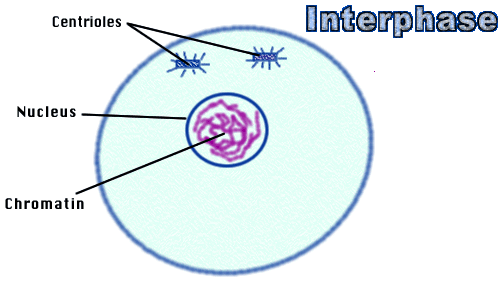 |
YARN MITOSIS/MEIOSIS
Students can practice mitosis/meiosis steps using yarn manipulatives |
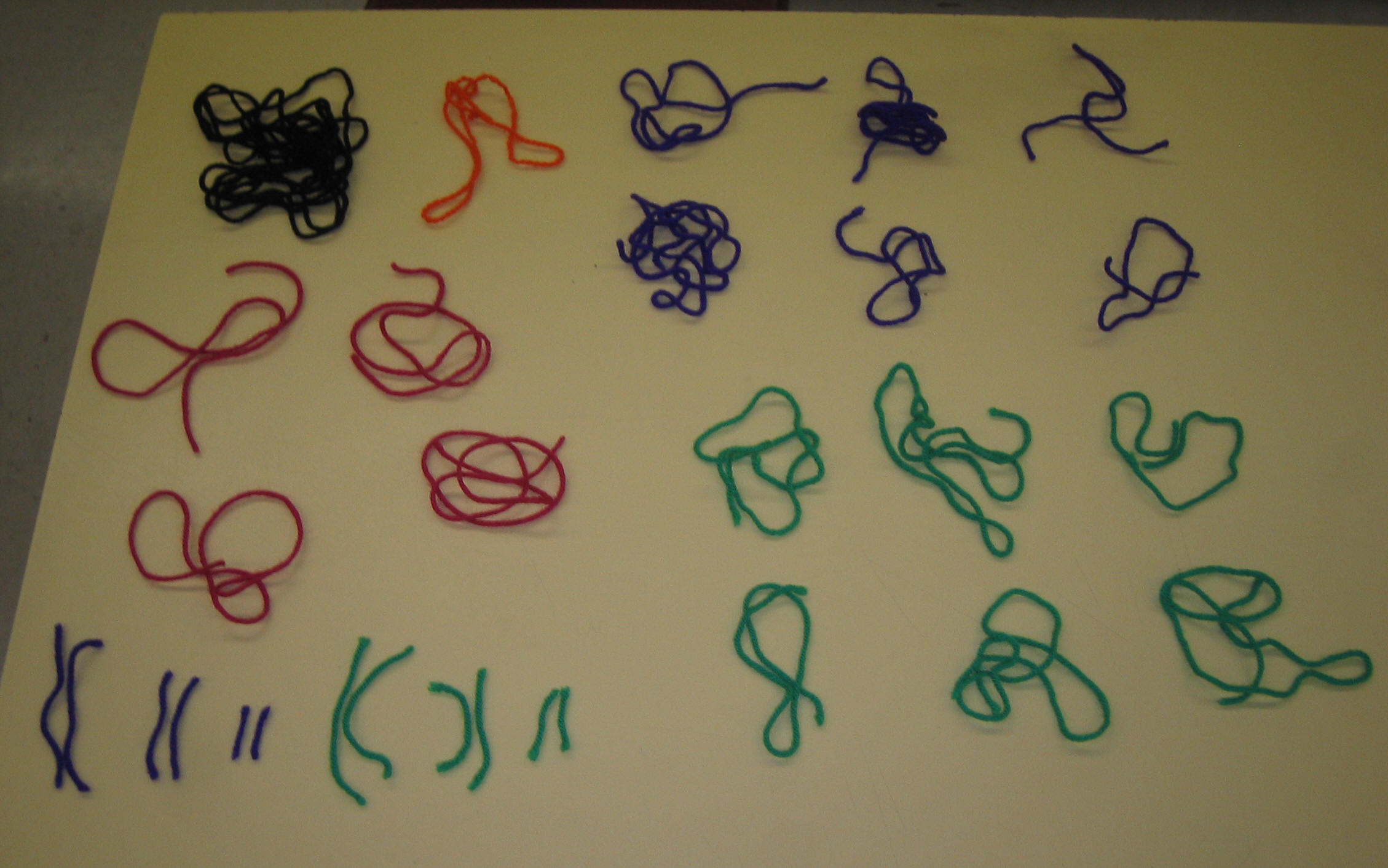 |
AHEAD OF TIME:
Cut out the yarn pieces according to directions and place in ziplock baggies.
Students can work individually or with a partner. Each will need a baggie with
yarn pieces. |
ACTIVITY:
Walk students through the phases of mitosis and have them move the yarn pieces
on their desks as each step is discussed. After they have practiced all
the phases, quiz them by naming different phases and have them create them on
their desks. Activity can be repeated when learning about meiosis so students
can see how it is different (synapsis, independent assortment, etc)
INTERPHASE: (IN
between dividing)
Set up cell membrane on desk (Use black string to make a big oval on the desk).
DNA will switch back and forth between chromatin (long) and chromosomes (short)
pieces during the activity.
In interphase DNA is spread out as chromatin.
Cells start with 6 chromosomes.
(Count out 3 long purple and 3 long green
strings and place in center of cell)
Nuclear membrane is visible (Place pink yarn piece around the DNA)
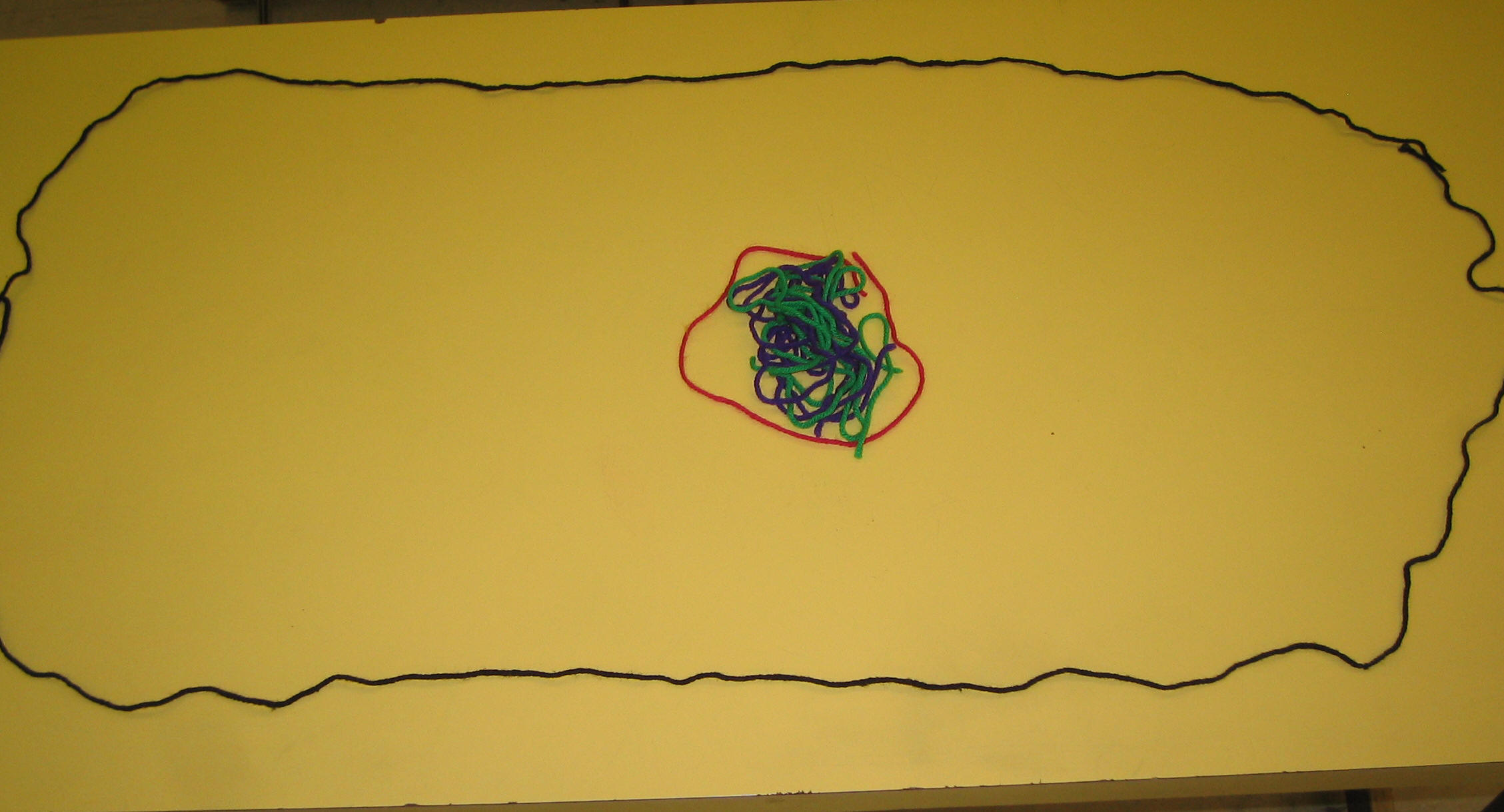
Image by Riedell
During S phase DNA is copied. Hold up each chromatin yarn piece and place a
"copy" along side of it.
(Use the 3 extra long purple/green strings)
Replace DNA in nucleus
PROPHASE: (First
dividing phase- Pros are #1)
Chromatin condenses into chromosomes (Replace longer yarn pieces in nucleus
with shorter ones)
Remember to keep the chromatid "copies" together.
Nucleus/nucleolus disappears. (Remove pink yarn piece around chromosomes)
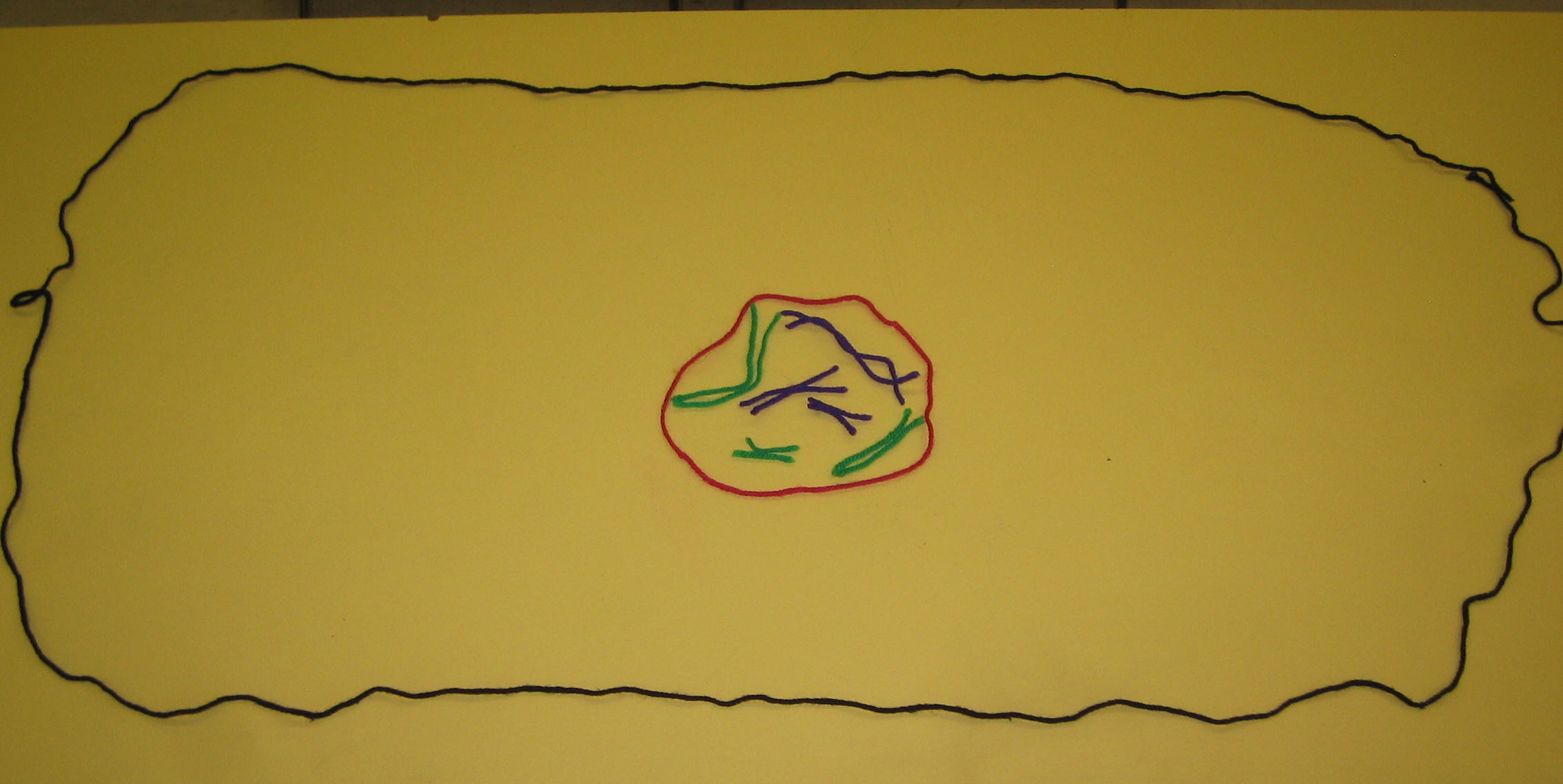

Images by Riedell
Centrioles/Spindle appear (students play role of spindle with their
fingers)
METAPHASE (MIDDLE)
Chromosomes line up in middle of cell. {Spindle (fingers) move chromosomes to
middle of cell}
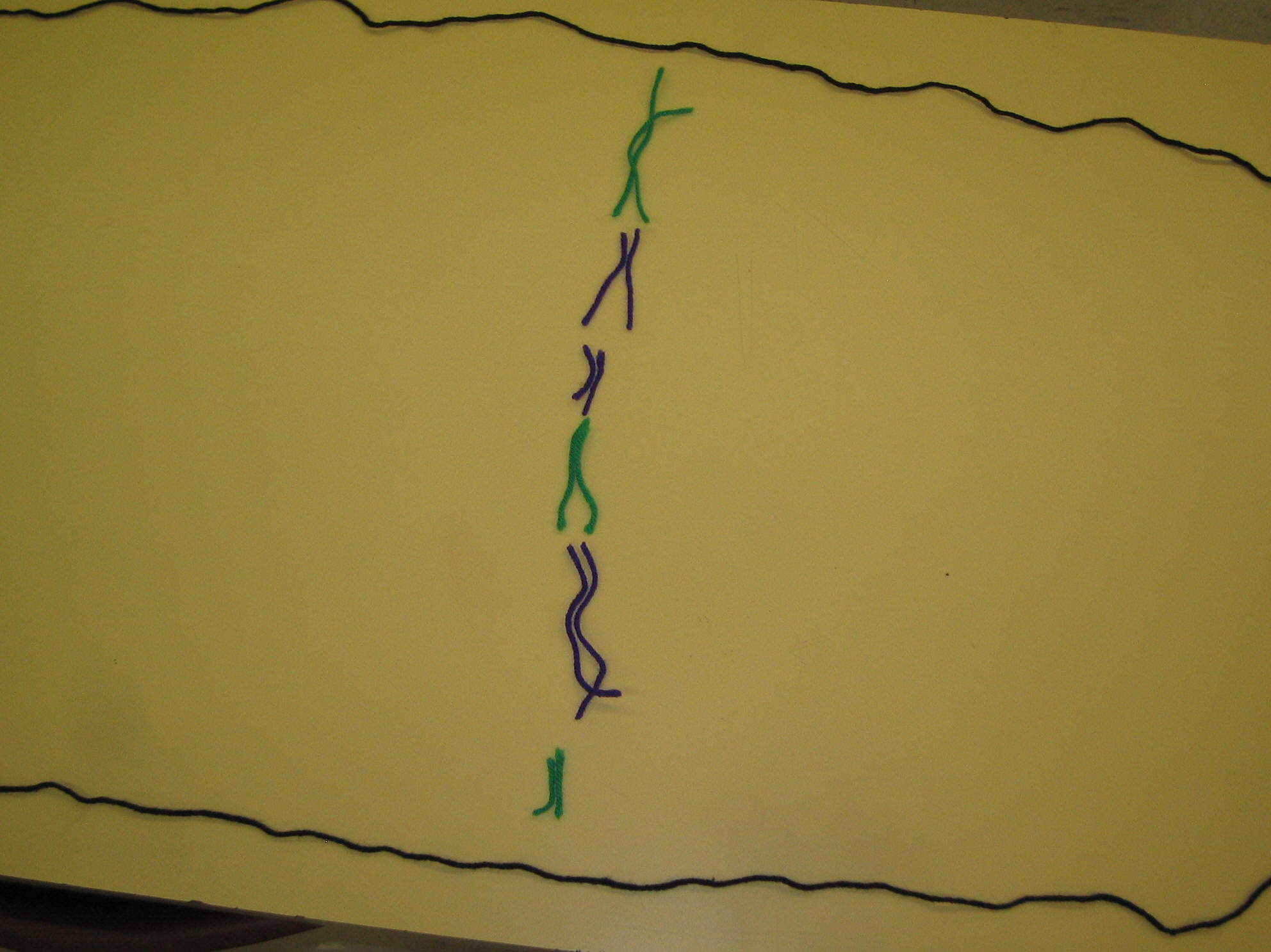
Image by Riedell
ANAPHASE (APART)
Chromatid arms separate and move to opposite ends of cell (Use fingers to
separate chromatid arms)
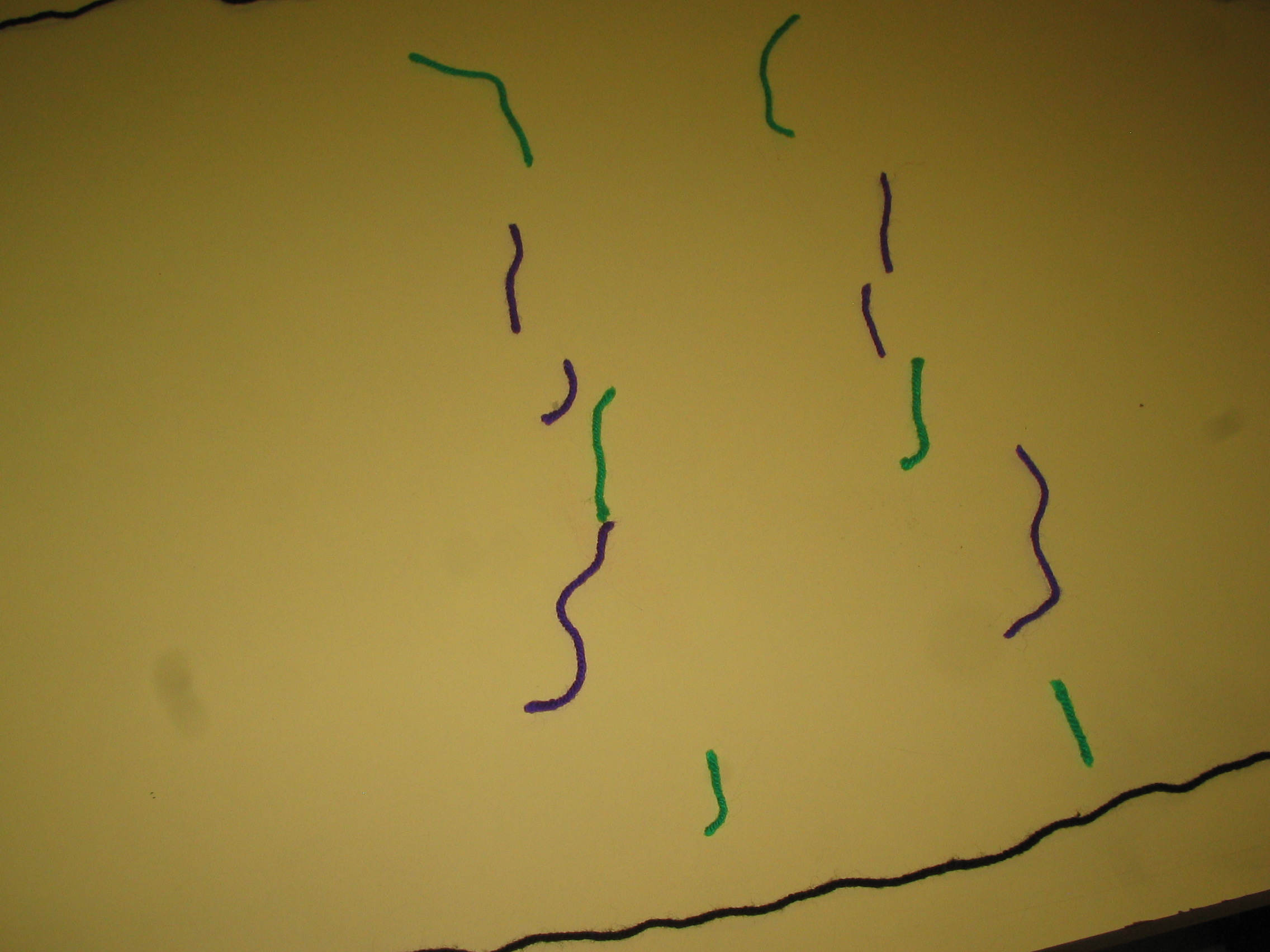
Image by Riedell
TELOPHASE (TWO
NUCLEI)
Count chromosomes. You started with 6 (3 large, medium, small purple & 3
large, medium, small green)
How many does your cell have now? (Should have 3 purple and 3 green; check
to make sure you have one L, M, S purple and one L, M, S, green)
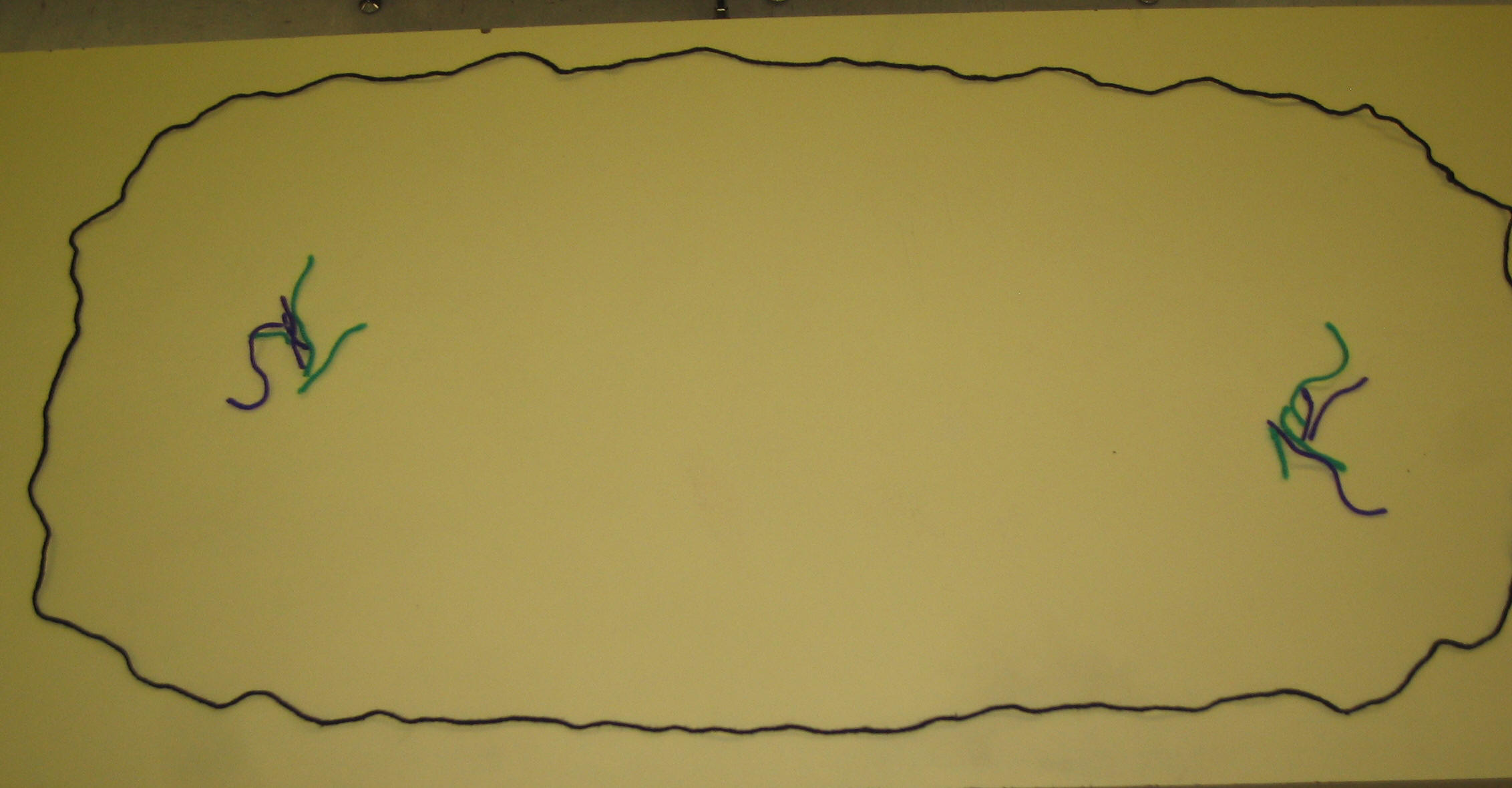
Images by Riedell
Chromosomes spread back out into chromatin (Replace short yarn pieces with
longer yarn pieces)
Nucleus/nucleolus return (Put pink string around each set of chromosomes.)
Spindle/centrioles disappear.
CYTOKINESIS (Cytoplasm
splits)
Animal cells use a cleavage furrow.
(Have students push cell membrane together
in middle to make two cells)
Plant cells make a cell plate
(Have students use their orange string to make a
wall instead of pinching)
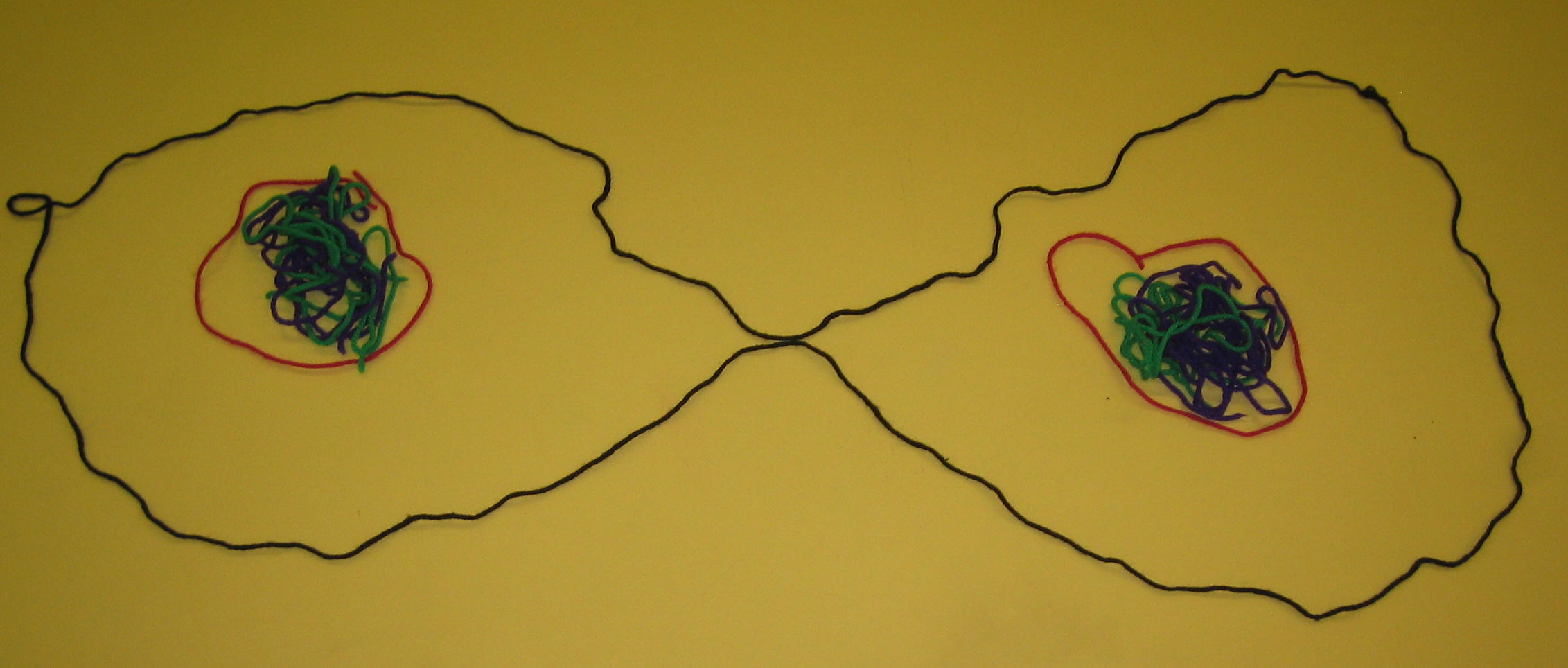
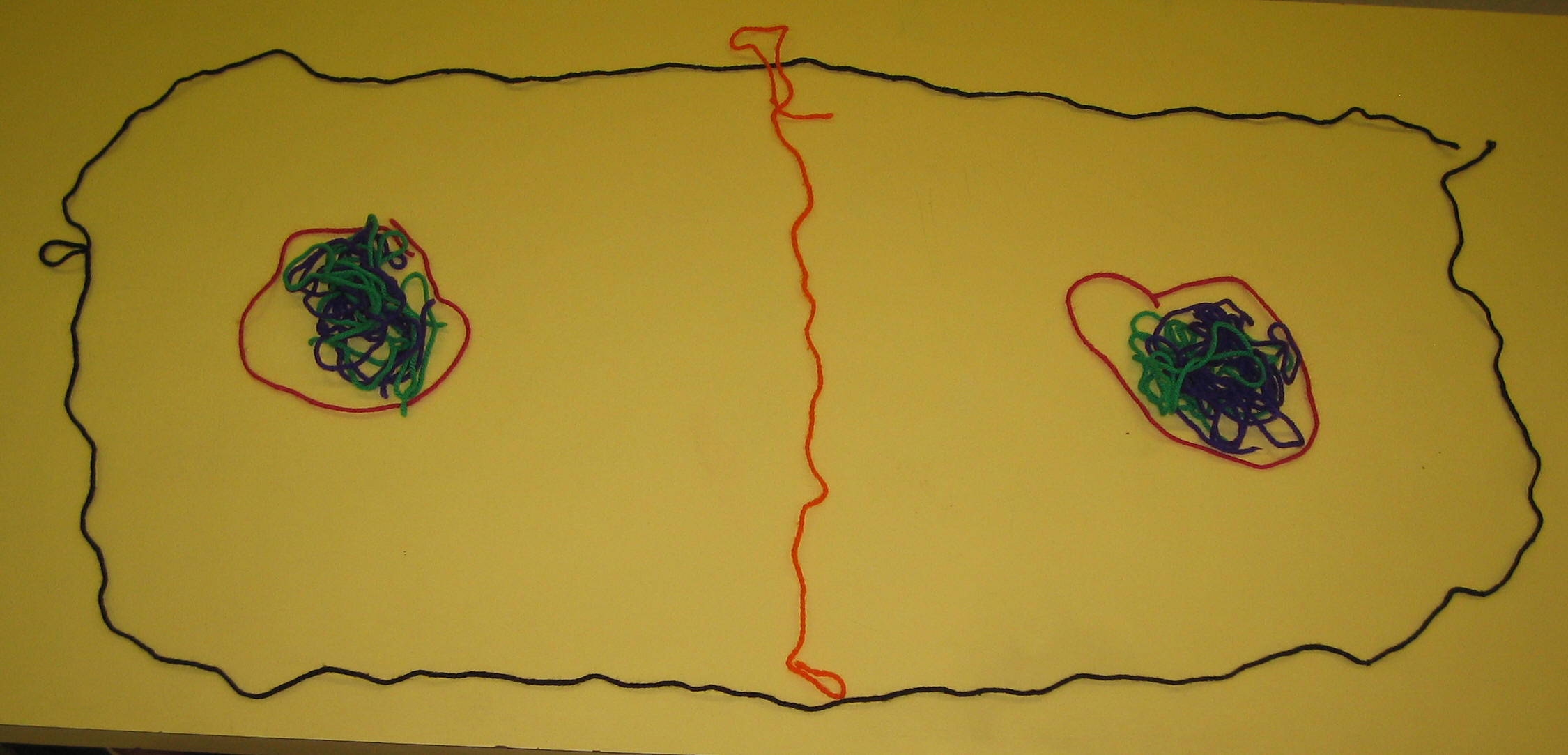
Images by Riedell
HOW IS MEIOSIS DIFFERENT?
PROPHASE I
Homologous partners match up (synapsis) and crossing over occurs
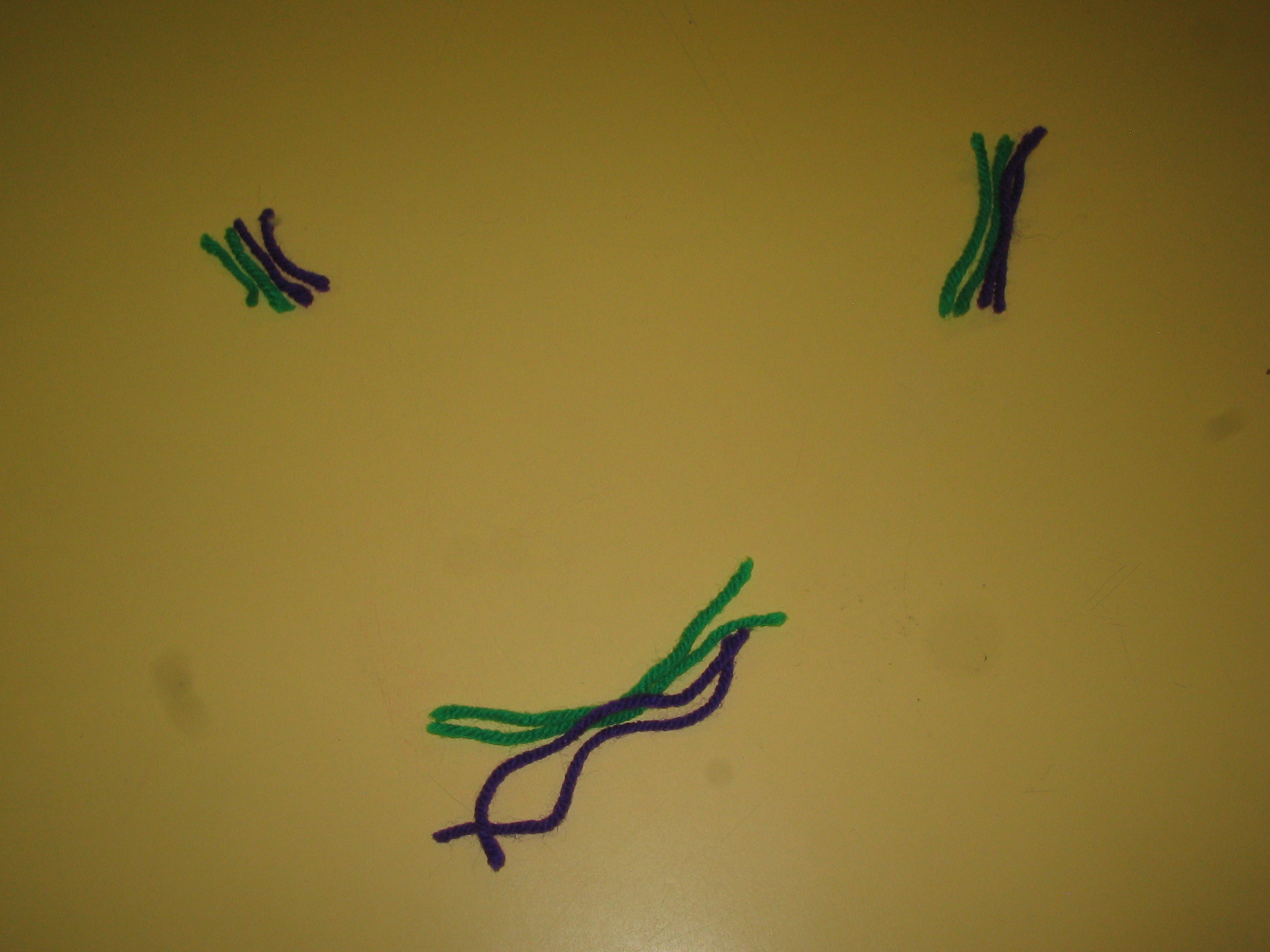
Image by Riedell
METAPHASE I
Homologous partners line up in middle together

Image by Riedell
ANAPHASE I
Homologous partners separate/chromatids stay together
Independent assortment
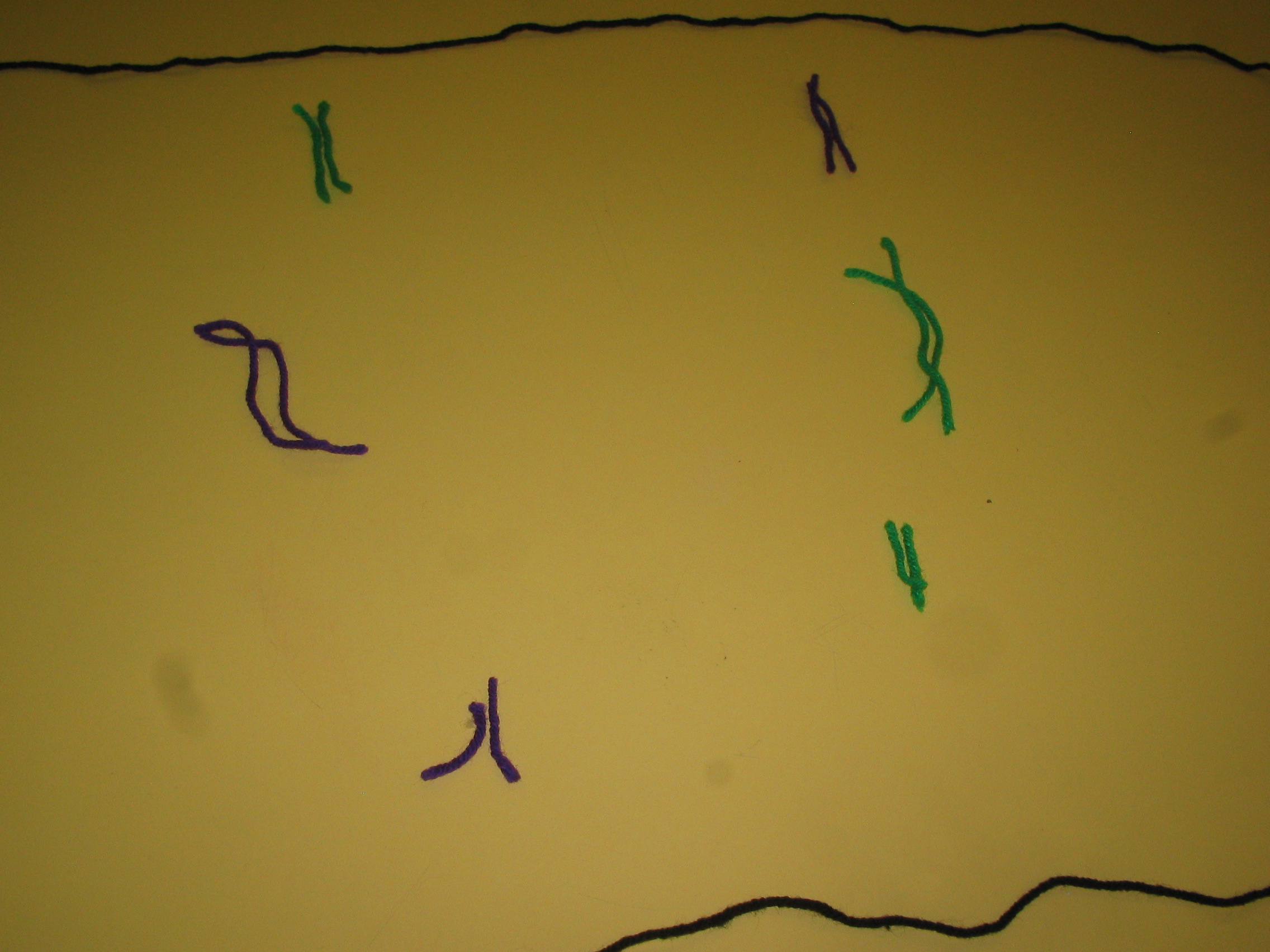
Image by Riedell
METAPHASE II
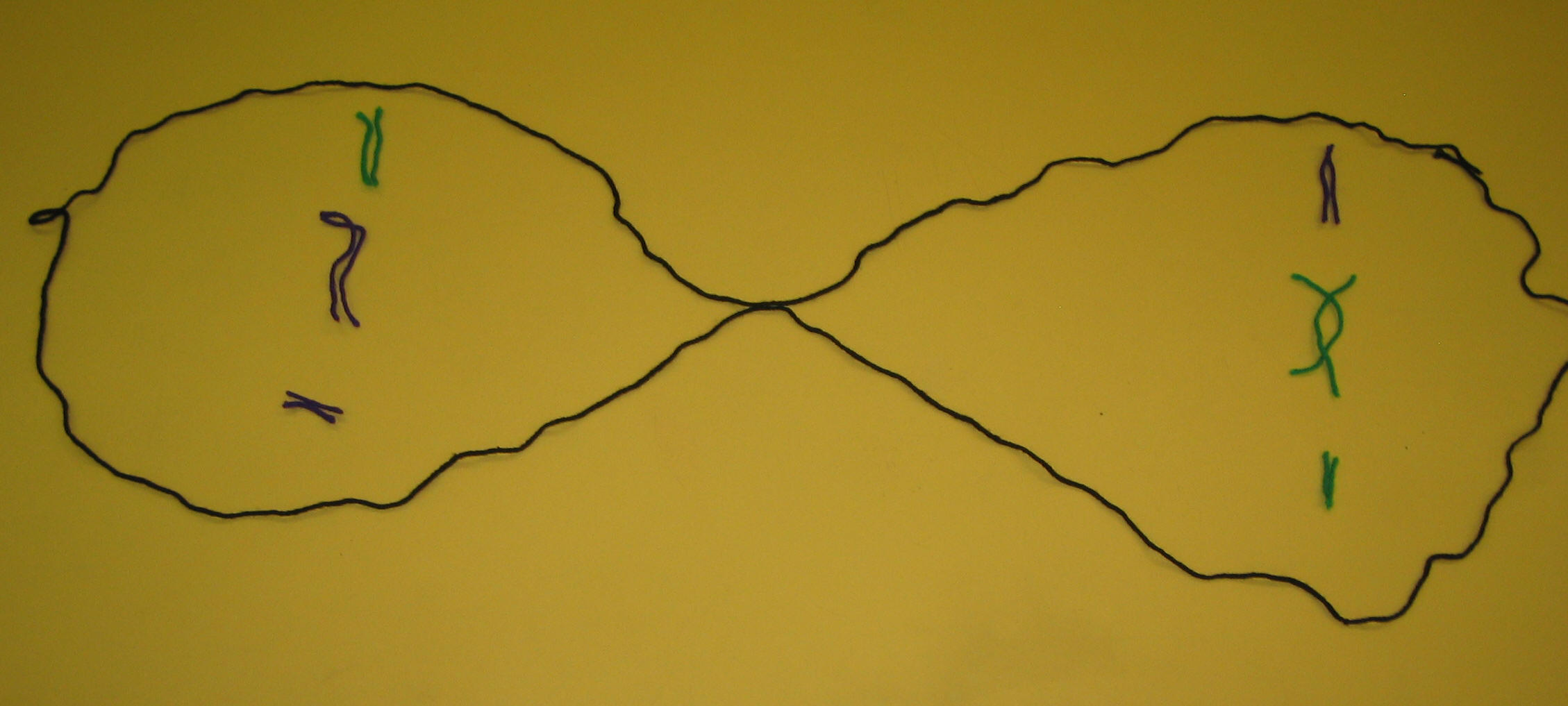
Image by Riedell
ANAPHASE II
Chromatids separate
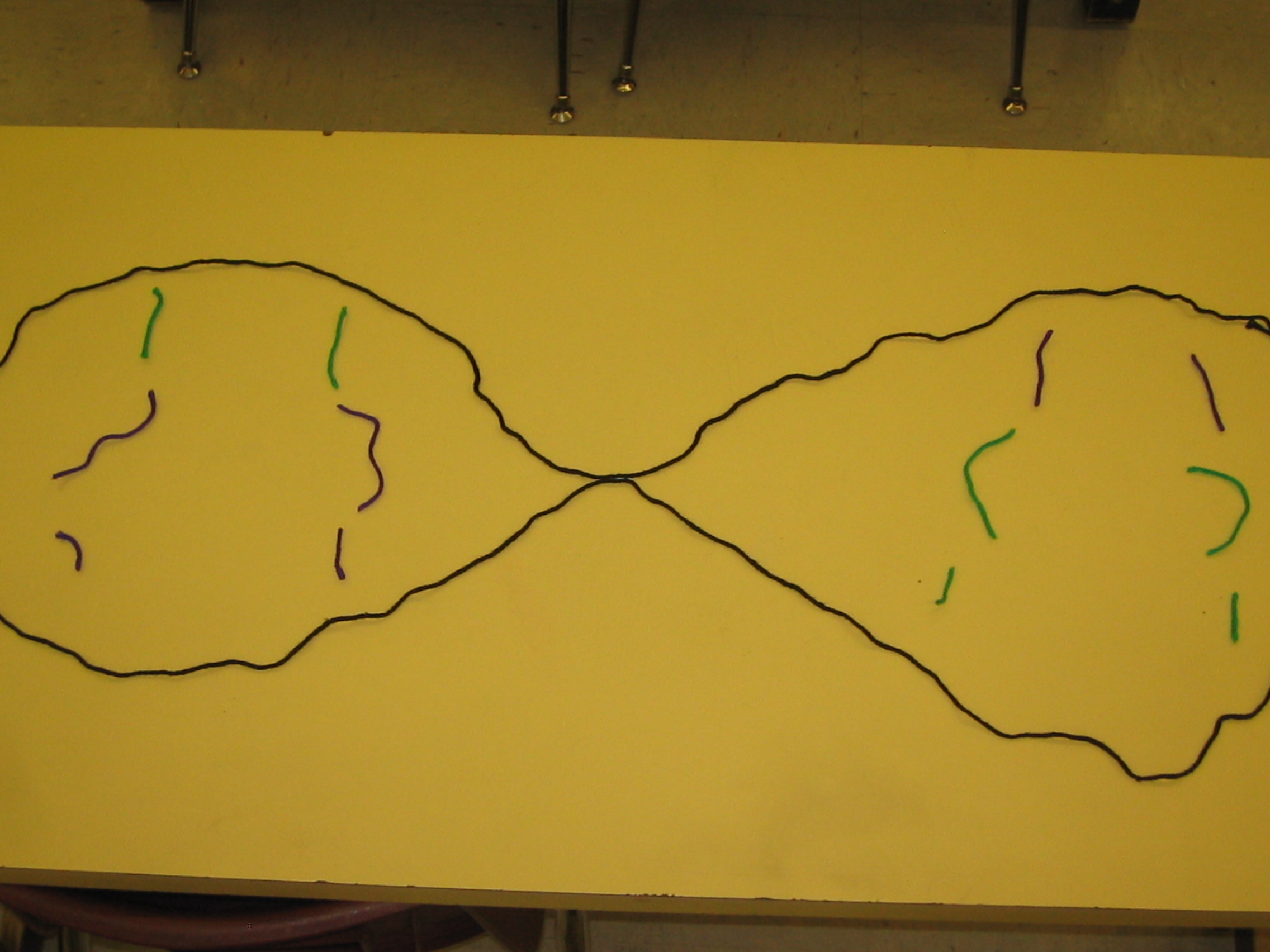
Image by Riedell
TELOPHASE II/CYTOKINESIS
Cells end up with only 3 chromosomes (one L, M, S)
Independent assortment gives different color combinations
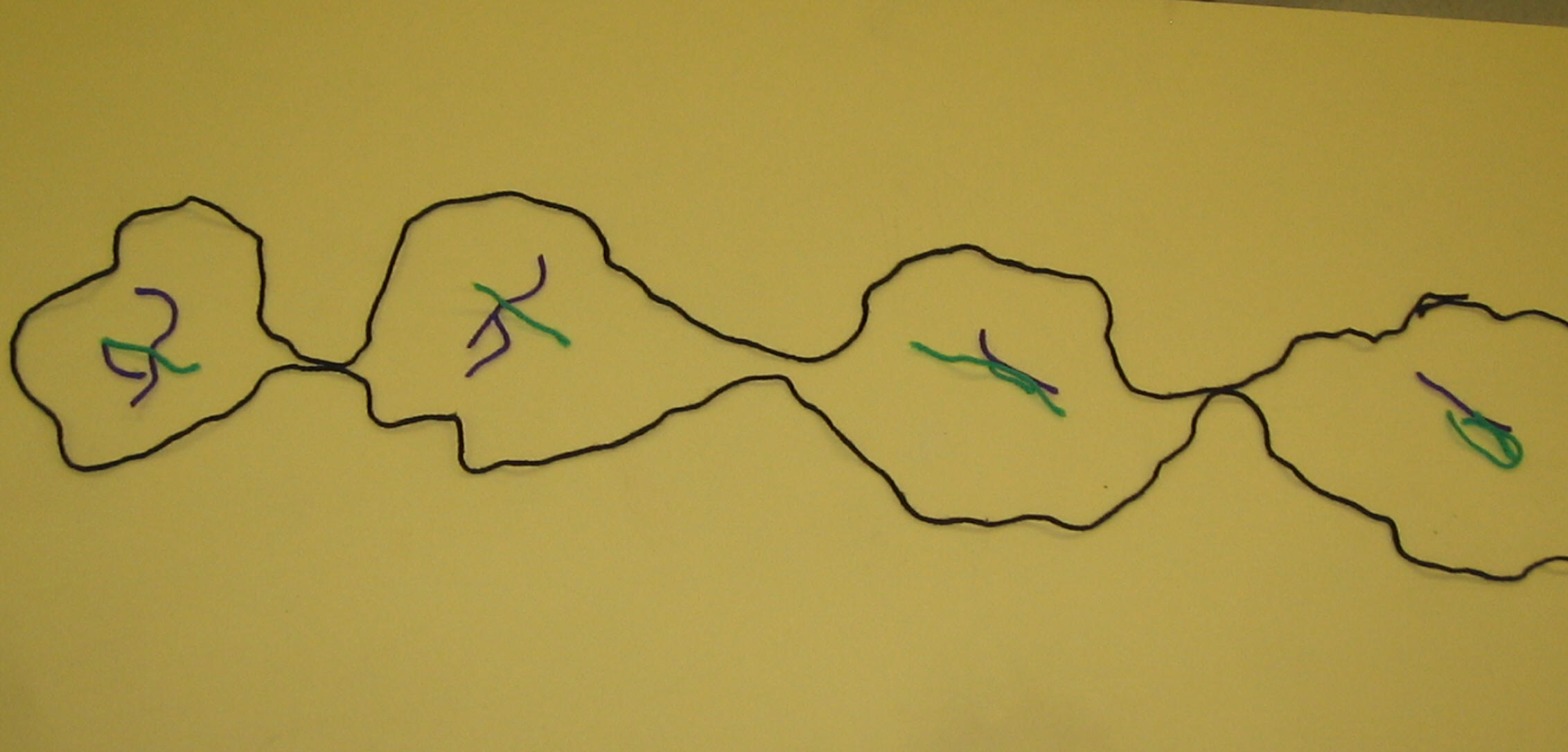
Image by Riedell
Bioteacher
help Biology
other units APBIOteacher
help Riedell
Science Home APBIO
other units Zoology
other units
![]()















